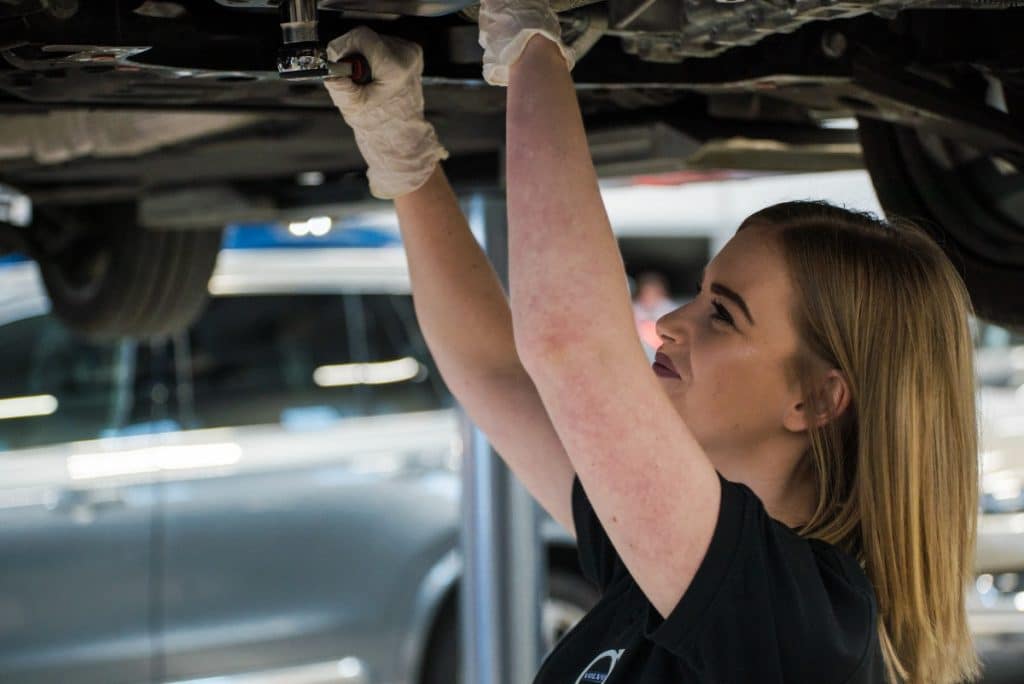The automotive industry, a sector traditionally dominated by men, continues to struggle with female representation, which currently hovers at just 19%, a stark contrast to the 51% seen in non-automotive industries. A recent study by Venson Automotive Solutions sheds light on the reasons behind this disparity, revealing that half of the women surveyed would not consider a career in the motor industry, citing a lack of encouragement and the belief that they lack the necessary technical skills.
The research also highlights a societal and educational gap that has long hindered the industry’s ability to attract women. A third of the women surveyed reported that a career in the automotive sector was never presented as an option by their family, school, or college. Venson calls for a concerted effort at both societal and educational levels to address this issue, emphasising the need to encourage young women to consider careers in the automotive sector, including fleet management, to create a workforce that better reflects the market it serves and to help fill the ongoing skills shortage.
Alison Bell, Operations Director for Venson, underscores the urgency of this issue: “The automotive sector faces its biggest skills challenge of the last two decades, yet half of the women we surveyed said they would not consider a career in the motor industry as they believe they don’t have the technical abilities needed. The Institute of the Motor Industry reports that filling traditional posts, including vehicle technicians, tyre, exhaust, and windscreen fitters, is still a significant challenge. It is easy to see the knock-on effect on the fleet industry unless initiatives are taken to address the gender imbalance.”
Despite the challenges, Venson’s research also offers a glimmer of hope. It reveals that 26% of women would or have considered a career in the motor industry, while 24% remain uncertain. Among those considering the sector, the most popular career choice is car design, with 33% of respondents expressing interest. This is followed by automotive application software engineering, a field responsible for developing software systems for in-car technology, which attracted 26% of potential candidates. Meanwhile, 24% of women expressed interest in becoming vehicle technicians, specialising in the increasingly computerised aspects of vehicle repair.
The research also points to a generational divide in attitudes towards the automotive sector. Younger women, particularly those aged 18 to 24, show the most interest, with 34% stating they would consider a job in the industry. However, this interest wanes with age; just over a quarter (27%) of women aged 25 to 34 would contemplate a career in automotive, and less than a quarter (23%) of those aged 35 to 44 would do the same.
Bell stresses the importance of capturing the interest of younger women at an early stage: “Even with the positive response from the 18- to 24-year-olds, it is clear that more needs to be done to capture the younger age group at school and college level when they are choosing their career options.”
Encouragingly, industry initiatives are beginning to address the gender gap. The Association of Fleet Professionals recently held a course on public speaking for women in fleet, aimed at amplifying female voices within the sector. Bell applauds this effort but insists that more must be done: “As a sector, we all need to play our part in promoting our chosen motor industry career paths to help demonstrate that they are attainable to all and that anyone can work in what is one of the world’s most exciting industries.”
The call for greater female representation in the automotive industry is clear. To meet the skills challenge and ensure the sector’s future, targeted efforts to engage and inspire women from a young age are essential.

